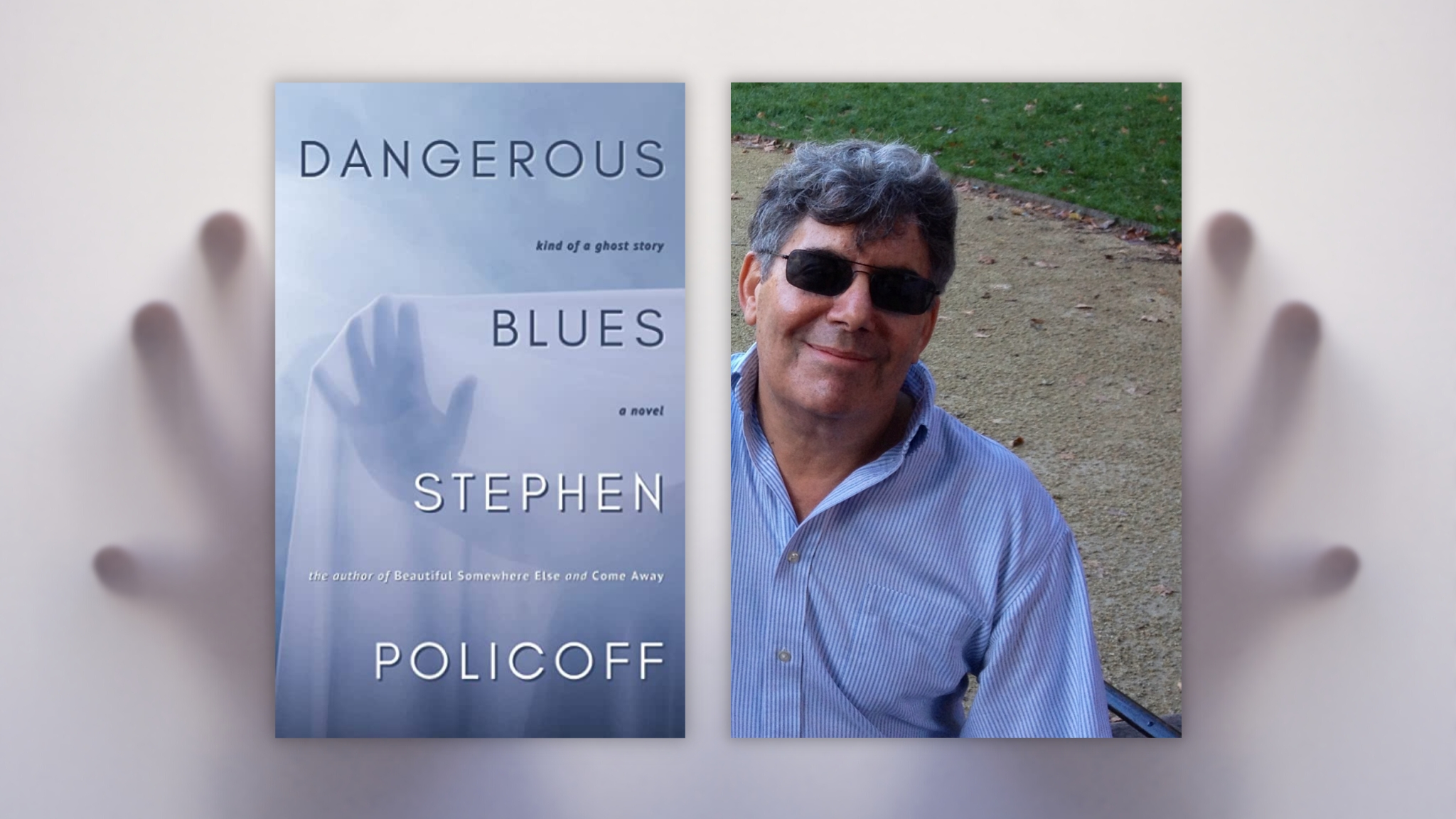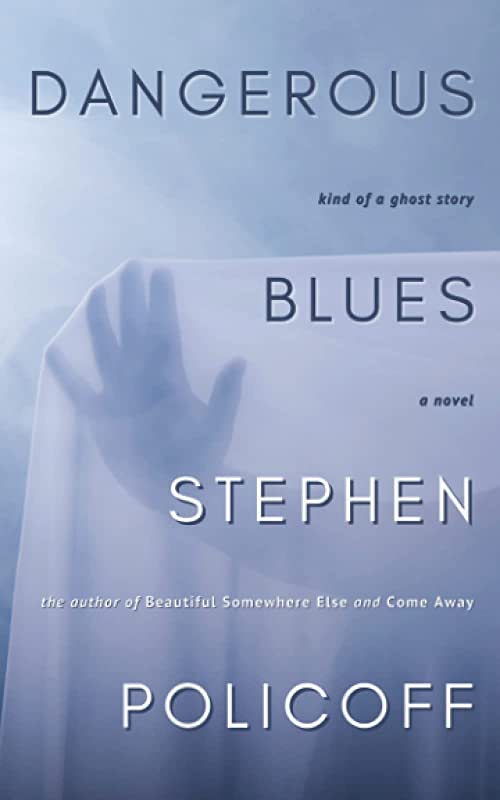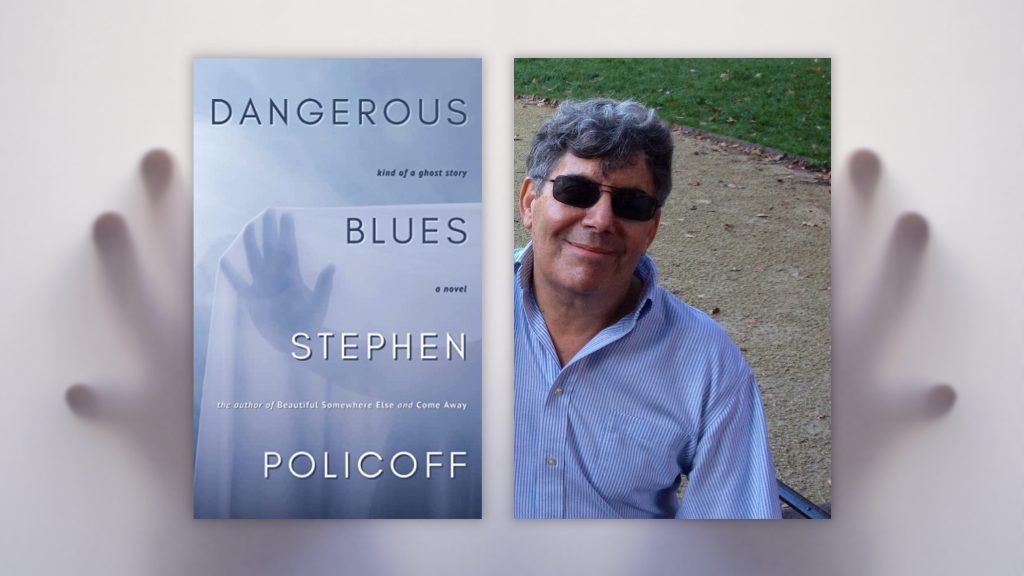
Dangerous Blues by Stephen Policoff
Stephen Policoff’s Dangerous Blues (Flexible Press) comes with the unique subtitle of “Kind of a Ghost Story.” It’s hard for the book to not be, at least partially, a ghost story — because the protagonist keeps seeing the specter of his late wife. But the book is also a touching portrait of a young parent trying to find himself and cope with great loss, or a coming of age story of a middle-grade girl who has lost her mom, or a tale of New York with a gritty feel for the streets, the clubs, the sounds, the sensations. And a tale of the supernatural. And let’s throw in a strange cult. Dangerous Blues is all these things.
We got a chance to speak with the author about the intensely personal inspiration behind this book, as well as what makes New York City the best setting for a “kind of” ghost story.
Q: They say the spirit of those we lose always stays with us. Tell us how you develop that theme in your book, Dangerous Blues.
A: Although none of the specific events of the novel happened to me, Dangerous Blues is in some ways my most autobiographical novel. I have never actually seen a ghost, but I see the image of my beautiful dead wife in my thoughts and dreams all the time. And trying to express the ways that grief and loss take shape in our lives, trying to create a world where we are not sure what is imagined and what is seen, fearing/hoping there might be a secret, more magical dimension to our world, that was the starting point for me in writing Dangerous Blues.
Q: The main character is a widower paralyzed by a loss — a grieving father with his 12-year-old daughter. Where did you come up with this storyline, and was it inspired by real life?
A: I did indeed lose my wife Kate to cancer when my daughter was around 11, and I had to cope with that tragedy and how to help my grieving daughter through it as well. I had no intention of writing a novel about this, but I repeatedly found myself wondering what it would be like to feel actually haunted instead of metaphorically haunted. That gave me the initial seed of Dangerous Blues. I already had the narrator in mind: Paul Brickner, a somewhat more unstrung version of myself, narrates both of my previous novels. It is his wife Nadia who he fears may be haunting him. And Paul’s porousness toward the supernatural made him the obvious narrator of Dangerous Blues.
Q: What role do ghosts and magic play in the book?
A: I have always been intrigued by the idea of magic and the supernatural — mostly as a metaphor for all that we do not understand about the world, about how powerless we often feel in the face of the world’s weirdness. All three of my novels dip into this Unknown Realm. But ghosts seem to me the most believable form of the supernatural; the image of a lost soul stuck somewhere between planes of existence is an almost universal idea. And so, Dangerous Blues is haunted by the possibility of ghosts, of those lost to us lingering on and by the past itself hanging over us like a dark cloud.
Q: New York City seems like a strong supporting character in this book. Tell us how you used the venue to tell the story.
A: I have lived in New York City for most of my adult life, but never really wrote about it. But when I decided to “move” Paul and his daughter Spring out of their upstate New York house — fleeing the sad memories of Nadia’s death — it seemed natural to bring them to my neighborhood. New York has a somewhat haunted quality — shadows everywhere, old buildings next to gleaming towers, the way streetlights make everyone look pale, uneasy. And I made use of some of my favorite neighborhood places — The Merchant’s House Museum (rumored to be haunted), Washington Square Park, where a giant hanging tree still stands. New York’s odd energy and shadowy streets definitely helped me construct the world of Dangerous Blues.
Q: What was the hardest part of the book for you to write?
A: Certainly, the sections where Paul is trying to figure out whether he is actually seeing Nadia’s ghost or not were hard in the sense that I had to tune into dark memories of my own lost love. But the ending was really the hardest part. I rewrote that several times. I wanted the possibility that Paul and Spring will be able to live more hopeful lives, but I didn’t want to overplay that hand. I left it somewhat ambiguous, because ambiguity is my jam.
Q: What would you want readers to take away from this book?
A: Maybe a sense that it is still possible to find beauty and hope in a world full of darkness? And that we should not — cannot — erase our sad memories but must learn to honor them and live with them.
Q: What is your next project?
A: I am tinkering with a memoir which needs another draft, but I have also found myself starting a new novel which — yes! — does contain some supernatural elements, including a mysterious iPad-like object which appears to allow the viewer to see dead loved ones on a little screen.
 Stephen Policoff is the award-winning author of Beautiful Somewhere Else and Come Away. His work has appeared in Cosmopolitan, Ladies Home Journal, New Age Journal and many other publications.
Stephen Policoff is the award-winning author of Beautiful Somewhere Else and Come Away. His work has appeared in Cosmopolitan, Ladies Home Journal, New Age Journal and many other publications.

Publish Date: October 3, 2022
Genre: Fiction, Paranormal
Author: Stephen Policoff
Page Count: 275 pages
Publisher: Flexible Press
ISBN: 9798986245904

